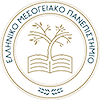 |
Tel.: (+30) 2810 379775 Office Hours: Κ20.1.16, Thursday and Friday 08:30-10:00 e-mail: krogdakis@hmu.gr Assistant Professor Εxtended CV |
Short CV
Rogdakis Konstantinos is an Assistant Professor in Nanoelectronics at the Department of Electrical & Computer Engineering at the Hellenic Mediterranean University (HMU). He has more than 15 years research experience in the academic sector working on nanoelectronics, spintronics and optoelectronics. He possesses extensive hands-on experience on emerging low dimensional electronic systems including nanowire transistors, GaAs single spin quantum-bits, as well emerging phenomena in functional oxide and superconductive/ferromagnetic interfaces towards beyond-CMOS technologies. He has served at various academic research positions in high reputation European institutions including the Foundation of Research and Technology in Greece, the Institut Néel CNRS in France and the London centre for Nanotechnology – University College of London in United Kingdom. Prof. Konstantinos Rogdakis received his undergraduate degree in Applied Mathematics and Physical Sciences and his master’s degree in Microsystems and Nanodevices both from National Technical University of Athens, Greece in 2005 and 2006, respectively. He obtained his PhD in Nanoelectronics from Grenoble Institute of Technology in France, in 2009. He is a member of Technical Chamber of Greece. He is currently the team leader of innovative printed electronics at the Nanomaterials for Emerging Devices research group in HMU. His current research interests include 2D materials engineering in various printed device concepts including high performing solar cells, functional sensors and thin film memristors/transistors for neuromorphic computing towards energy efficient, intelligent Internet of Things and wearables.
MAIN RESEARCH INTERESTS
- SiC and Si nanowire field effect transistors
- Perovskite oxide nanoelectronics
- Emerging printed electronics (sensors, transistors, memristors)
- Single spin quantum-bits
- Superconductive spintronics
- Photovoltaic devices enabled by 2d materials
KEY RECENT PUBLICATIONS
- Loizos, K. Rogdakis, et al., 2024 Resistive switching memories with enhanced durability enabled by mixed-dimensional perfluoroarene perovskite heterostructures Nanoscale Horizons DOI: 10.1039/D4NH00104D
- Rogdakis, et al. 2024 Hybrid Chips to Enable a Sustainable Internet of Things Technology: Opportunities and Challenges, Discover Materials 4 (1), 4 (Nature Springer)
- Rogdakis, et al., 2023 Mixed‐Halide Perovskite Memristors with Gate‐Tunable Functions Operating at Low‐Switching Electric Fields, Advanced Electronic Materials, 2300424
- Polyzoidis, K. Rogdakis et al., 2023, Piezo-phototronic In2Se3 nanosheets as a material platform for printable electronics towards multi-functional sensing applications, Advanced Materials Technologies 8, 2300203
- Rogdakis et al., 2022 Memristive perovskite solar cells towards parallel solar energy harvesting and processing-in-memory computing, Mater. Adv., 3, 7002-7014
- Thiney, P.-A. Mortemousque, K. Rogdakis et al. 2022 In-flight detection of few electrons using a singlet-triplet spin qubit, Phys. Rev. Research 4, 043116
- Pescetelli et al. 2022 Integration of two-dimensional materials-based perovskite solar panels into a stand-alone solar farm, Nature Energy 7, p. 597–607
- Zekentes, E. Choi, E. Bano and K. Rogdakis 2022 Progress in SiC nanowire field-effect-transistors for integrated circuits and sensing applications, Microelectronic Engineering, 255, 111704
- C Polyzoidis, K Rogdakis, E Kymakis 2021 Indoor perovskite photovoltaics for the internet of things—challenges and opportunities toward market uptake Advanced Energy Materials 11 (38), 2101854
- Rogdakis, N. Karakostas and E. Kymakis 2021 Up-scalable emerging energy conversion technologies enabled by 2D materials: from miniature power harvesters towards grid-connected energy systems, Energy & Environmental Science, 14, 3352
EXPERIENCE ON SECURING EUROPEAN/NATIONAL FUNDING AND PROJECT MANAGEMENT
Extended experience in research proposal submission including setting up and managing various consortia. His list includes more than 25 proposal submissions, participating in 10 successful grant allocations with a total HMU budget >4.6Mie for the period 2020-2027. Dr Rogdakis served as the scientific admin of Work Package 11 – Core 3 phase of Graphene Flagship on energy conversion for the period 2018-2023, while he is currently the interface office leader in two European research infrastructures, namely EMERGE on ’Emerging Printed Electronics’ and INFRACHIP that focus on sustainable semiconductor chips.
